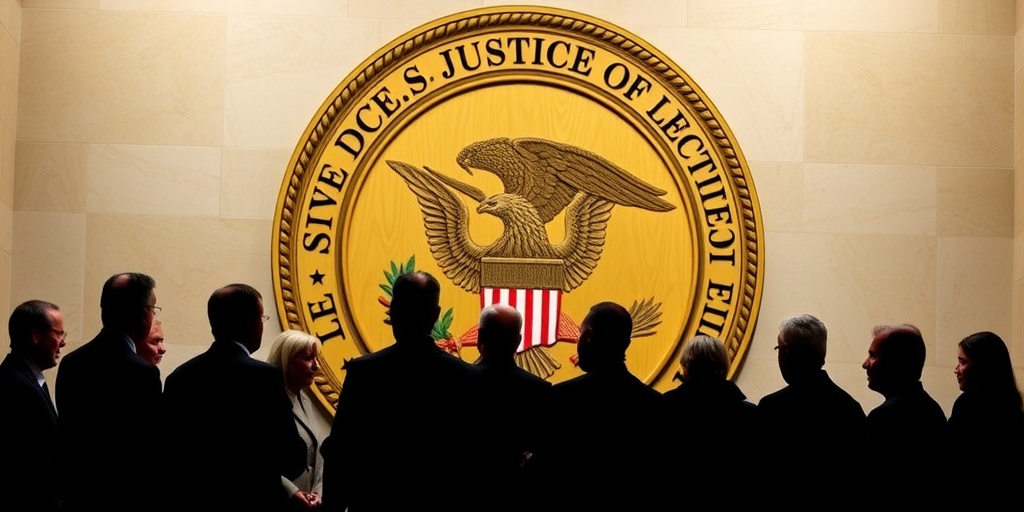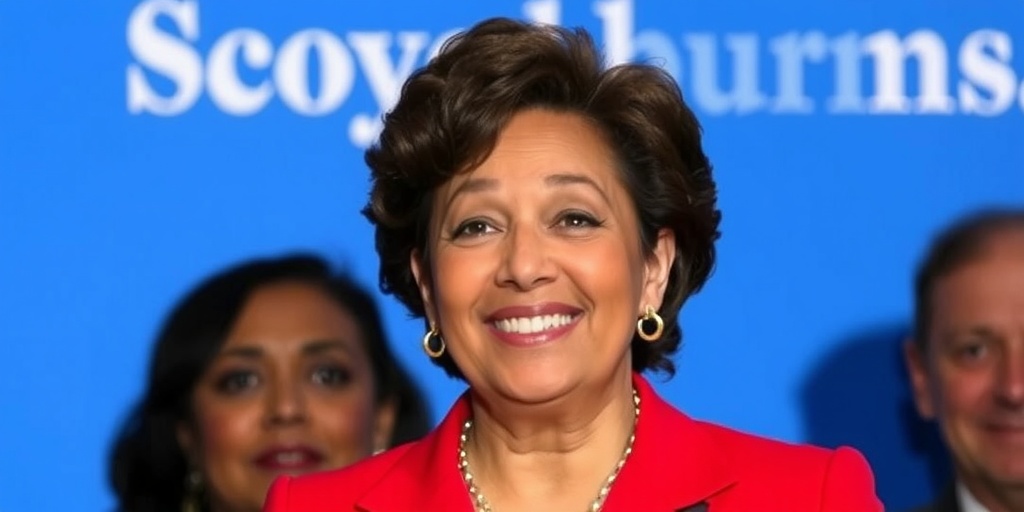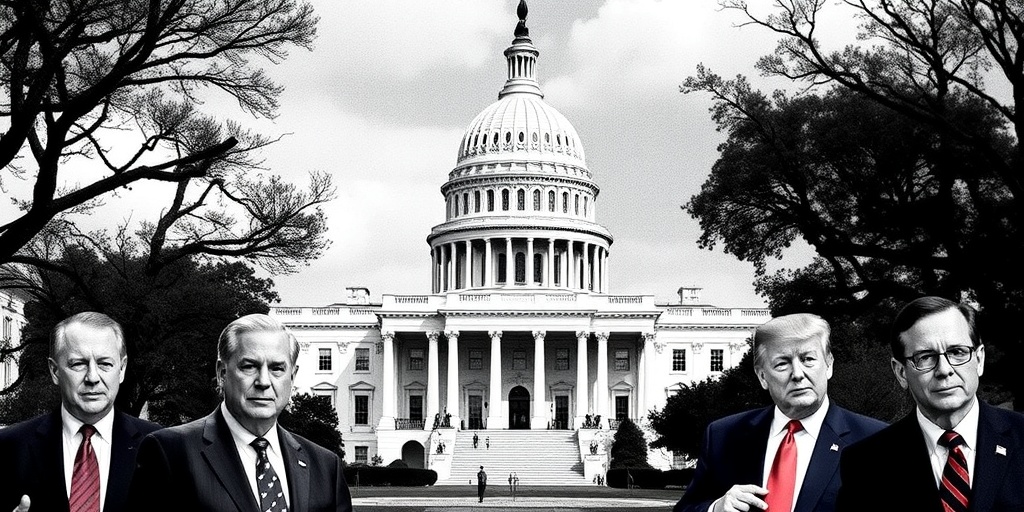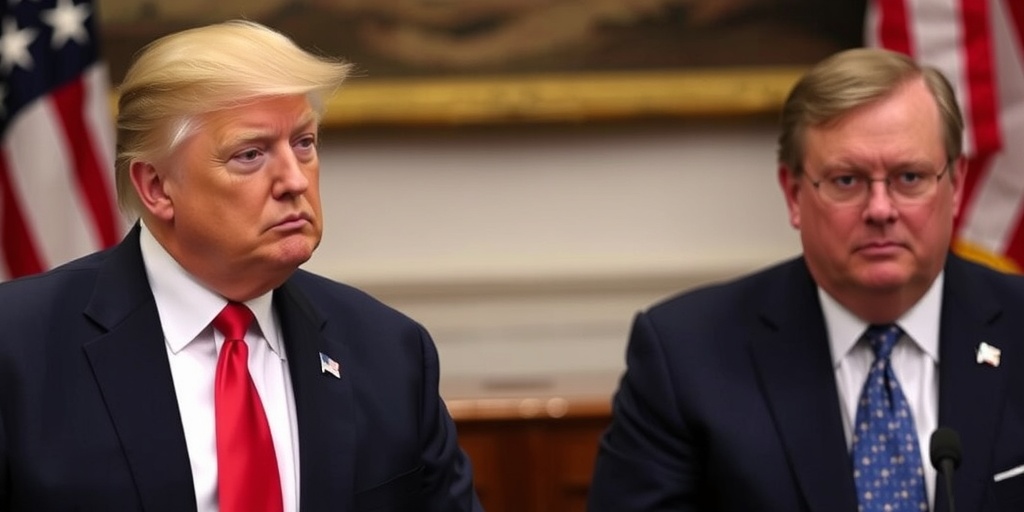Now Reading: Justice Dept. Plans to Downsize Fraud and Corruption Units
-
01
Justice Dept. Plans to Downsize Fraud and Corruption Units
Justice Dept. Plans to Downsize Fraud and Corruption Units

Justice Department Plans Major Restructuring of Fraud and Corruption Units
In a significant move that could alter the landscape of federal investigations into fraud and public corruption, officials at the U.S. Justice Department are currently drafting plans aimed at extensively restructuring and downsizing key investigative units based in Washington, D.C. According to multiple sources briefed on the matter, these plans are yet to be finalized but could be revealed within a matter of days.
If implemented, this initiative represents yet another effort by the Trump administration to curtail the ability of federal prosecutors in Washington to pursue high-profile and politically sensitive cases against businesses and elected officials. Such changes follow a pattern of actions taken by the administration, which claims that certain prosecutors’ offices have been politically "weaponized" or overreach in their functions under the Biden administration.
The discussions surrounding these structural changes include uncertain prospects for the future of cases currently handled by Washington’s prosecutorial teams. One possibility mentioned is the potential reassignment of these cases to U.S. attorney’s offices located throughout the country. However, officials have also floated the idea of drastically reducing the number of ongoing investigations in the nation’s capital, leading to broader implications for how fraud and corruption cases are handled going forward.
Chad Gilmartin, a spokesperson for the Justice Department, refrained from commenting on the specifics of the proposed changes. Yet, he underscored that the leadership is focused on optimizing resource allocation to ensure the department’s mission of making America safe is effectively achieved. This indicates a commitment to re-evaluating how the department addresses complex and politically sensitive investigations.
The restructuring plans are reportedly set to impact several critical units within the department, including the public integrity division, which primarily focuses on criminal cases involving elected officials. Additionally, other units dedicated to prosecuting foreign corruption and investigations concerning money laundering and asset recovery could also be affected. This would represent a seismic shift in the prosecutorial landscape, given the prominence and powers traditionally held by these units.
Notably, the public integrity unit has already faced significant staff reductions, with several prosecutors resigning last month in response to pressure from higher-ups to drop an ongoing bribery case involving New York City Mayor Eric Adams. Such developments highlight a growing atmosphere of tension within the department as political pressures seem to influence prosecutorial decisions.
The anticipated restructuring could also see the number of prosecutors in the corruption and fraud units cut down from an original count of 20 to 30 to potentially as few as 10 in each unit. In addition, there are discussions regarding the possibility of stripping these units of their independent authority to file charges, which would effectively diminish their role to mere advisory positions without substantial law enforcement powers.
This strategy aligns with the administration’s approach of shifting responsibilities for fraud and corruption cases to U.S. attorney’s offices located in various states. Officials believe that local investigators are better equipped to handle cases of fraud and public corruption pertinent to their jurisdictions, thus reinforcing the administration’s view on the ideal structure for federal law enforcement.
This planned restructuring comes at a time of intense upheaval within the Justice Department, which has witnessed a wave of firings, demotions, and other significant personnel changes in recent months. The proposed changes to the fraud and corruption units mark the latest effort by the administration to redefine how such cases are prosecuted and managed.
Moreover, the Trump administration recently enacted an executive order halting all investigations and prosecutions related to corporate corruption in foreign countries, a move facilitated under the Foreign Corrupt Practices Act. This decision has raised concerns that pursuing such cases may hinder the competitive position of U.S. businesses on the global stage. As part of the ongoing re-evaluation of the department’s initiatives, officials have also shelved programs aimed at seizing assets held by foreign kleptocrats, indicating a broader retreat from international anti-corruption measures.
As the Justice Department navigates this complex landscape of restructuring and political influence, the potential implications for governance and accountability remain to be seen. The effectiveness of federal investigations into corruption and fraud will be closely scrutinized, especially as these changes unfold in the coming days and weeks. The evolving dynamics within the department will likely shape the future of public integrity and electoral accountability as the administration seeks to consolidate its control over prosecutorial functions.
Stay Informed With the Latest & Most Important News
Previous Post
Next Post
-
 01New technology breakthrough has everyone talking right now
01New technology breakthrough has everyone talking right now -
 02Unbelievable life hack everyone needs to try today
02Unbelievable life hack everyone needs to try today -
 03Fascinating discovery found buried deep beneath the ocean
03Fascinating discovery found buried deep beneath the ocean -
 04Man invents genius device that solves everyday problems
04Man invents genius device that solves everyday problems -
 05Shocking discovery that changes what we know forever
05Shocking discovery that changes what we know forever -
 06Internet goes wild over celebrity’s unexpected fashion choice
06Internet goes wild over celebrity’s unexpected fashion choice -
 07Rare animal sighting stuns scientists and wildlife lovers
07Rare animal sighting stuns scientists and wildlife lovers




















